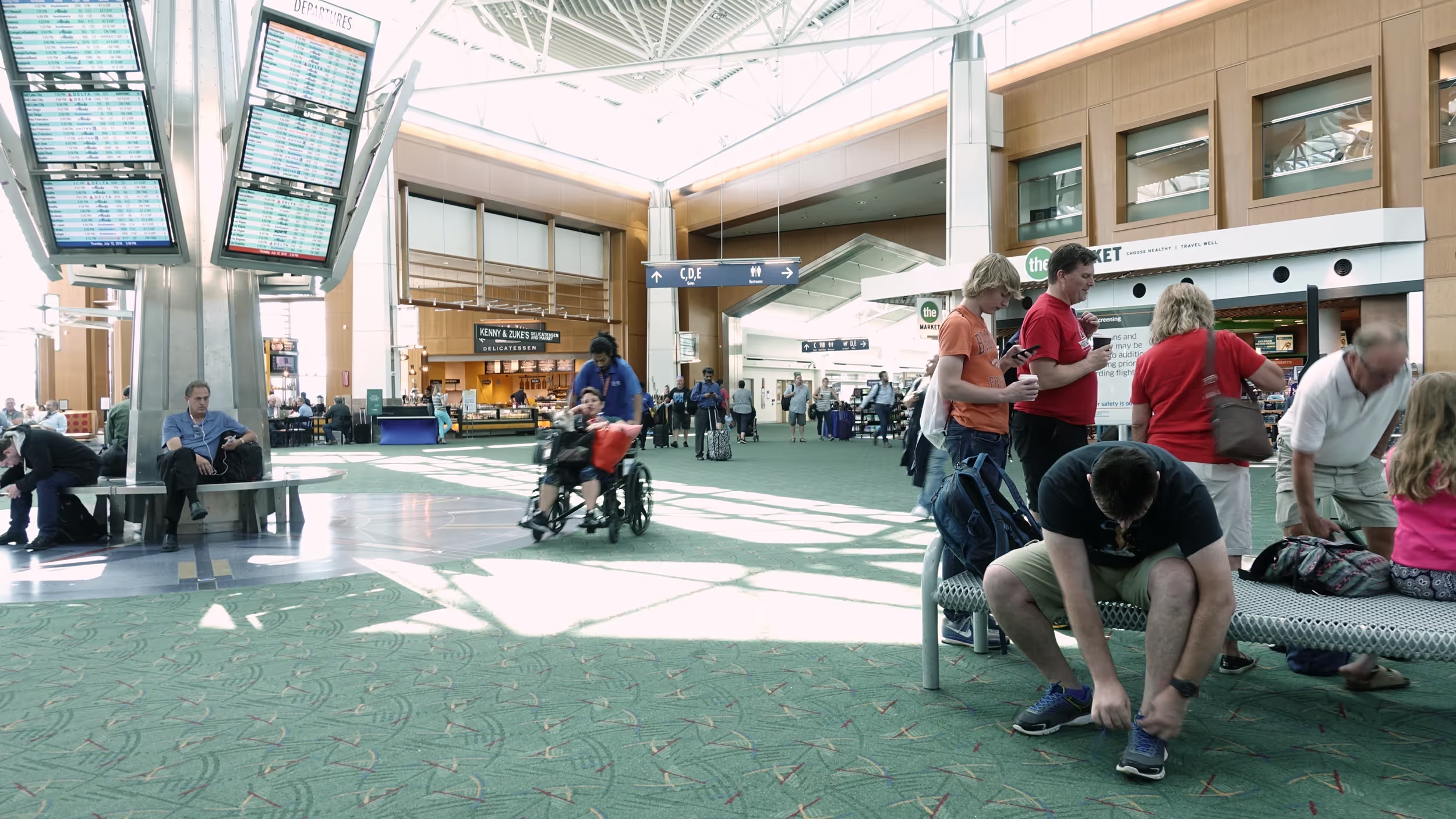Travel Time Pay for Construction Workers: Everything You Need to Know

If you're still chasing paper timesheets, you know the pain: two hours vanish every week just logging who drove where and when.
That guesswork buries travel costs in the wrong job codes and sends budgets off the rails before you notice. Miss the mark long enough and you could end up facing compliance penalties. Read this guide to learn how to pay crews correctly, keep projects on budget, and stay out of court.
What is Travel Time Pay for Construction Workers?
Travel time pay for construction workers is compensation required by federal law when employees travel during work-related activities.
Commuting from home to the regular job site? That’s off the clock.
But the second you load materials, pick up tools, or drive between sites, the clock starts. Every minute counts and it all goes toward paid time. Once the workday begins, any travel becomes paid work (and it counts toward overtime, too.)
The Fair Labor Standards Act (FLSA) and its Portal-to-Portal amendment draw clear lines between ordinary commuting and job-related travel. Here's exactly when the clock starts ticking and when it doesn't.
You can memorize that table but tracking travel time across three crews in two counties? That’s where the wheels come off. Most construction firms are still stuck with paper timesheets or blurry phone photos at the end of the week.
Memory lapses and bad handwriting turn those records into guesses. That guesswork drives payroll errors, miscodes labor to the wrong jobs, and forces finance to reconcile costs that should’ve been right the first time.
When travel hours hit the wrong job code, your cost reports lie. Budgets get blown and you don’t see it until after close—when it’s too late to fix.
That’s why you need to nail down accurate travel time, preferably with automated tracking. This way, you can cut disputes, protect margins, and keep the crew focused on pour-day, not paperwork.
Federal Rules You Need to Know
The Fair Labor Standards Act establishes the foundation: if a worker is on the clock, you pay them. For non-exempt construction crews, every hour spent working gets paid, including travel between job sites during the workday.
You can pay different rates for travel versus on-site work. Federal law allows that flexibility, but every paid travel hour still counts toward the 40-hour overtime trigger. Miss that detail and your "cheap" travel rate becomes time-and-a-half by Friday.
Legal Structure Across States
Federal rules are just the starting point. The minute your crews cross state lines, the most worker-friendly rule wins, even if it's stricter than federal law. Take care to keep this in mind or you're going to be stuck paying back wages, penalties, and dealing with angry workers.
Whichever law gives workers the biggest check is the one you should follow.
You can't ignore county or city rules either. Chicago, Los Angeles, and New York City all stack extra requirements on top of state law. Skipping them can expose your next project to penalties or enforcement actions if violations are detected.
Multi-state contractors see this problem daily.
The scheduling headaches rival booking multi city flights—every leg has its own rules. A crew pulling conduit in Indiana on Monday finishes the week across the border in Illinois.
Same people, same work, but the travel clock resets the moment they cross state lines. Your system needs to tag hours by project location, or payroll becomes guesswork and overtime liabilities pile up fast.
California Deep Dive
California has some of the strictest worker protections, and it shows in travel pay rules.
Every paid hour (travel or otherwise) must be paid at least minimum wage, and if no lower 'travel rate' is specified, then the worker's regular rate applies. That rate includes bonuses and prevailing-wage differentials in overtime calculations.
California also requires mileage or vehicle reimbursement under Labor Code § 2802.
If your laborer drives a personal pickup loaded with tools, you owe both the travel wage and the mileage. Separating those two payments incorrectly is a common audit trigger.
California's record-keeping rule also expects you to log accurate start and stop times, meal periods, and total hours worked for each employee.
While handwritten timesheets are legally acceptable if they are clear. Poorly kept records can lead to payroll issues. Using a GPS system that geofences job sites is an optional tool employers can use to improve accuracy in timekeeping.
How to Calculate Construction Travel Time Pay
Transform travel time from a legal minefield into a defendable line item with this six-step workflow. Having airtight travel records keeps audits moving.
- Confirm the travel gets paid. If the crew is bouncing between job sites or hauling tools from the yard, it's paid time under federal rules. Ordinary home-to-site commuting stays off the clock.
- Pin down start and stop points. Track the moment a worker leaves the first work location (shop, yard, or site) and the moment they hit the next one.
- Apply the right rate. You can pay travel at a different hourly rate as long as it clears minimum wage and the arrangement is spelled out in writing.
- Fold travel hours into overtime. Compensable paid travel minutes such as required travel between job sites or from the employer's premises to a work site, count toward the 40-hour federal threshold but routine commuting does not.
- Tag costs to the right project. Code the hours to the correct job before payroll runs.
- Document everything for at least three years. Clear records shut down most wage claims before they start.
In summary, make sure your policy tells workers when and why you're tracking so you stay on the right side of privacy laws.
Mileage & Expense Reimbursement: Critical Distinctions
Travel time pay and vehicle expenses look similar on timesheets but are handled completely differently in payroll. Mixing them up can lead to underpaying wages, overpaying taxes, and potential legal issues.
The FLSA (Federal Labor Standards Act) requires you to pay hourly workers for all travel time but this doesn't address mileage or vehicle costs.
To stay compliant and avoid costly mistakes, treat wages and expenses as two separate categories:
- Pay travel time through payroll (with overtime and tax withholding), reimburse mileage through accounts payable at the IRS rate (70¢ per mile in 2025), and maintain documentation for at least three years (receipts, odometer logs, GPS reports)
- Vehicle assignment clarity. With company vehicles, your business covers all costs, while with personal vehicles, reimbursement begins when employees transport company tools. Clearly document these rules in your policy
- To avoid tax mistakes, never classify mileage as wages (which increases payroll taxes) or travel hours as expenses (which denies workers overtime pay). Instead, use separate GL codes in your accounting system for proper tracking
When working across states, just like for time travel pay, follow the most generous rule for all crew members when it comes to expense reimbursement.
With these distinctions in place, you'll maintain compliance while managing both travel time and vehicle expenses.
Building a Compliant Travel Pay Policy and Technology Solutions
You can't fix travel-time chaos with a half-page memo. Your crews need clear answers to the questions they ask every week—"Is this drive paid?" "At what rate?"—before anyone leaves the yard.
A complete policy covers seven pieces:
- Clear definitions of compensable travel
- Documentation requirements (how and when time is logged)
- Rate structures, including differentials for travel vs. on-site work
- Overtime integration that folds paid travel hours into weekly totals
- Project allocation rules so costs land on the right job codes
- Dispute resolution steps that don't stall payroll
- Annual legal review to catch rule changes in states like California or New York
Spell it all out in plain terms. Then back it up with tools built for how construction actually works. Good systems respond to the jobsite in real time:
- Weather delay? The dashboard flags idle hours so you can reassign crews before payroll balloons
- Emergency call-out at 2 a.m.? The system tags those hours at the premium rate and allocates them to the right job
- Multi-state compliance? Rule engines apply the most generous law automatically—no manual overrides, no missed overtime
Review your policy every year. Keep your tech up to date when state laws shift. Get this right, and you’ll spend Fridays on project planning—not paycheck firefighting.
Eliminating the Travel Time Pay Administrative Nightmare
Field crews burn around two hours a week just piecing together travel time.
Misallocated hours can push job budgets into double-digit overruns before anyone notices. Throw in recent DOL guidance for construction travel pay violations and you're staring at big risk every payroll cycle.
When crews are bouncing between sites, project schedules shift with the weather, and rules change at every state line, technology stops being optional. It’s the only way to track time accurately, keep payroll compliant, and avoid budget blowups.
But most tools weren’t built for this work. You don’t want dashboards built for corporate travelers. You need something that works like the rest of their jobsite tools: simple, dependable, and built to handle complexity.
That’s where Engine comes in. Our platform was designed specifically for project-based industries like construction and field services. It tracks travel expenses by job code, ties hours directly to the right project, and cuts out the manual reconciliation that eats up back-office time.
You get clean cost data and a booking system crews can actually use—without training, contracts, or surprises. If travel time is turning into a weekly headache, it's time to switch to a system built for the work.
Try Engine today and transform travel management from an administrative burden into a competitive advantage.

Frequently Asked Questions (FAQs)
Do Union Workers Get Different Travel Pay?
No. Federal law treats travel time the same for union and non-union crews. But union contracts often include better benefits, so check your contracts before running payroll.
Is The Drive From A Hotel To The Job Site Compensable?
If the hotel in this scenario is considered the employees ‘home’ while on a work assignment, it is counted as a commute and is not compensable under the Fair Labor Standards Act (FLSA).
We Provide Company Trucks—Does That Change Anything?
Not really. If you require a stop at the yard to pick up the truck or tools, the clock starts when the worker shows up at that location.
Does Paid Travel Time Push My Crew Into Overtime?
Absolutely. Every minute of travel time counts toward the 40-hour federal limit, so a long haul on Thursday can trigger time-and-a-half on Friday.
How Long Do I Have To Keep Travel Time Records?
Keep timecards for at least two years and payroll records for at least three years. The DOL can audit that far back, and some states want longer retention.
Can I Substitute Per Diem Payments For Travel Wages?
No. Swapping flat per diem for travel wages feels clean until overtime math explodes. Keep per diem for meals, but let your time-tracking push travel hours straight into payroll at the right rate.


.jpg)



.jpg)


.avif)



.jpg)

.avif)



![What is an OBT? [+ Why They Matter]](https://cdn.prod.website-files.com/66a41388b1be9ba182f1e80c/66f97c4190ac5e26bea90c05_66a41388b1be9ba182f1efc0_online-booking-tool.avif)






.jpg)





.jpg)










.avif)

